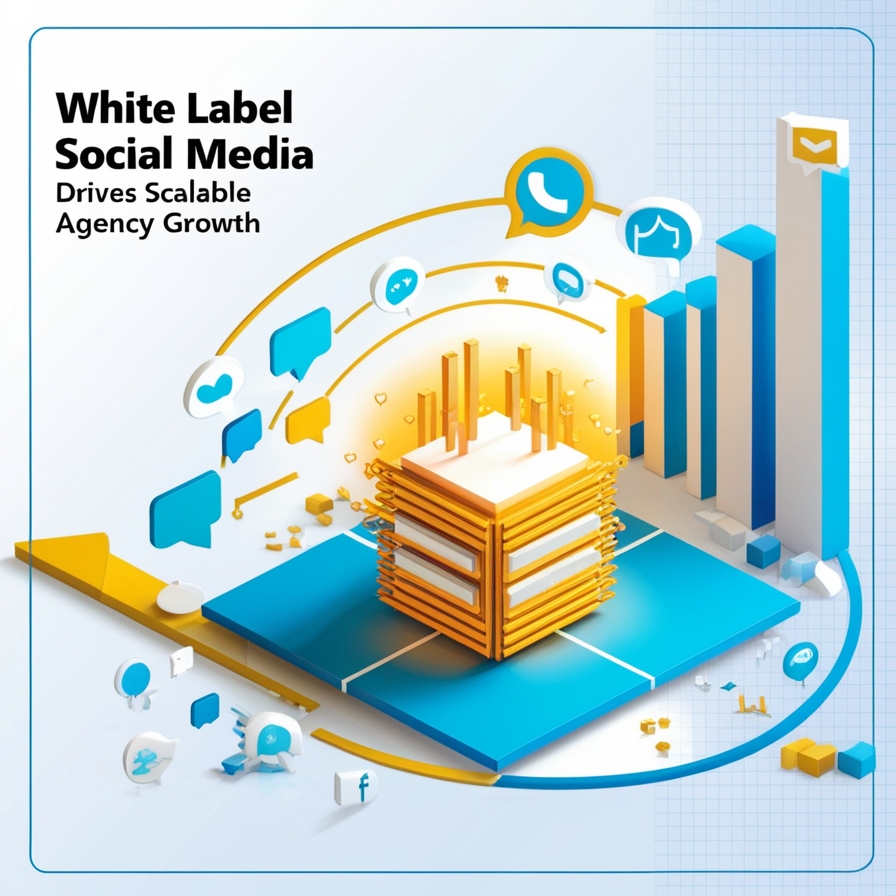Businesses face constant pressure to improve operations, keep up with customer demands, and stay ahead of competitors. When it comes to technology, many organizations initially turn to off-the-shelf software to meet their needs. However, these ready-made solutions often fall short when companies try to fit them into unique workflows or business models. That’s where custom apps come into play.
Partnering with a custom app development company allows businesses to create software built specifically for their needs. These custom applications offer flexibility, efficiency, and features tailored to solve real problems rather than forcing businesses to adjust their processes around generic tools. As the business landscape becomes more dynamic and technology-driven, working with a custom app development company will play an increasingly important role in powering growth and innovation.
What Are Custom Apps?
Custom apps are software programs designed and developed to address the particular needs and goals of a single business or organization. Unlike commercial software that targets a broad audience, custom apps cater to the specific processes, challenges, and user preferences of one entity.
These applications may cover areas like customer relationship management, inventory tracking, employee scheduling, or data analysis. The development process involves close collaboration between the business and software developers to create features that match exact requirements.
The Limits of Off-the-Shelf Software
While off-the-shelf software offers quick deployment and lower upfront costs, it often falls short in several ways:
-
One-Size-Fits-All Approach: Generic software targets a wide range of users, forcing businesses to conform their workflows to the software’s limitations.
-
Feature Overload or Shortages: These products often include features most users don’t need while missing key functions critical for some businesses.
-
Lack of Flexibility: Customization options are limited, making it difficult to adapt the software as the business evolves.
-
Integration Challenges: Pre-built software might not connect smoothly with other tools, causing data silos and manual work.
-
Recurring Licensing Fees: Businesses keep paying subscription or license fees regardless of whether the software fully meets their needs.
These constraints can lead to lost time, frustrated employees, and missed opportunities.
How Custom Apps Align Perfectly with Business Goals
Custom apps start with the business’s goals and build around them. Instead of forcing a business to adjust to the software, the software adjusts to the business. This alignment means:
-
The app supports core operations without workarounds.
-
Features directly address pain points and growth plans.
-
Development teams can prioritize functionalities that impact the bottom line.
-
The software evolves alongside business goals, adapting to new challenges and opportunities.
Such precise alignment leads to better adoption and measurable results.
Increased Efficiency Through Tailored Functionality
Custom apps eliminate unnecessary steps and automate tasks specific to a company’s workflows. This leads to:
-
Faster processes that save time for employees and customers.
-
Reduced errors caused by manual work or unsuitable software.
-
Streamlined operations that free staff to focus on higher-value activities.
For example, a custom inventory system might automatically reorder stock based on sales patterns unique to the business, something generic software may not handle well.
Scalability to Match Growing Business Needs
Businesses change, and so should their software. Custom apps offer:
-
A flexible architecture that supports growth, such as adding new users or features.
-
The ability to integrate emerging technologies like AI, machine learning, or IoT as needed.
-
Avoidance of forced migrations to new software as needs outgrow off-the-shelf solutions.
This scalability reduces disruption and long-term costs.
Competitive Advantage Through Unique Features
Custom apps can provide features your competitors don’t have, offering a distinct advantage. This might include:
-
Specialized reporting tailored to your key metrics.
-
Unique workflows that boost speed or quality.
-
Exclusive integrations with partners or suppliers.
Such unique tools can help a business stand out, win customers, and react faster to market changes.
Better Integration with Existing Systems
Many businesses use multiple software tools. Custom apps are built with integration in mind, allowing:
-
Smooth data flow between systems without manual transfers.
-
Unified user experiences that reduce training and confusion.
-
Consistent data accuracy and real-time updates.
These benefits improve overall efficiency and decision-making.
Improved User Experience for Employees and Customers
Custom apps focus on how users interact with software day-to-day. Developers design interfaces that:
-
Match the way employees work, reducing friction and speeding adoption.
-
Offer customers easy, intuitive access to services.
-
Include feedback loops to continuously improve usability.
A well-designed app improves satisfaction, retention, and productivity.
Enhanced Data Security and Control
When businesses handle sensitive data, control over security measures matters. Custom apps provide:
-
Tailored security protocols suited to business-specific risks.
-
Full control over data storage, backups, and access permissions.
-
Compliance with industry-specific regulations.
This control reduces exposure to breaches and builds trust with clients.
Cost Considerations and Long-Term Savings
While custom software may have higher upfront costs compared to off-the-shelf solutions, it offers significant long-term savings. A Webflow development agency or a custom app development company can build tailored digital solutions that align perfectly with your business needs, reducing the need for multiple subscriptions, manual workarounds, or costly third-party integrations. Over time, these custom-built tools improve efficiency, enhance scalability, and lower operational expenses. Unlike generic software, custom apps grow with your business, minimizing the need for frequent replacements or upgrades.
Additionally, you retain full ownership and control, avoiding recurring licensing fees. When considering the total cost of ownership, partnering with a Webflow development agency often results in a more economical, future-proof investment that supports long-term ROI and business growth.
Common Misconceptions About Custom App Development
Some businesses hesitate to pursue custom apps due to myths such as:
-
“Custom apps take too long to build.” While development requires time, agile approaches speed delivery and allow iterative improvements.
-
“Custom software is always expensive.” Initial costs vary, but long-term savings and better results balance the investment.
-
“Off-the-shelf software is simpler.” Ready-made solutions often require costly customizations or multiple tools, complicating workflows.
-
“We might outgrow a custom app.” Properly designed apps scale and evolve alongside your business.
Clearing up these myths helps companies make informed choices.
How to Approach Custom App Development
Businesses that want to benefit from custom apps should:
-
Clearly define objectives and challenges.
-
Work with experienced developers who listen and adapt.
-
Use agile development methods for continuous feedback and updates.
-
Prioritize user experience and security from day one.
-
Plan for ongoing maintenance and improvement post-launch.
This approach increases the chance of success and delivers software that truly fits.
Conclusion
Custom apps offer businesses a powerful way to align technology with unique needs and goals. They provide flexibility, efficiency, security, and competitive advantages that off-the-shelf software can’t match. While custom development requires an upfront commitment, the long-term benefits in productivity, cost savings, and growth potential make it an investment worth making.
As businesses continue to face rapid change and rising expectations, custom apps will become central to how companies compete and succeed. Those who take the step to build software tailored to their exact needs position themselves for a more agile and prosperous future.








